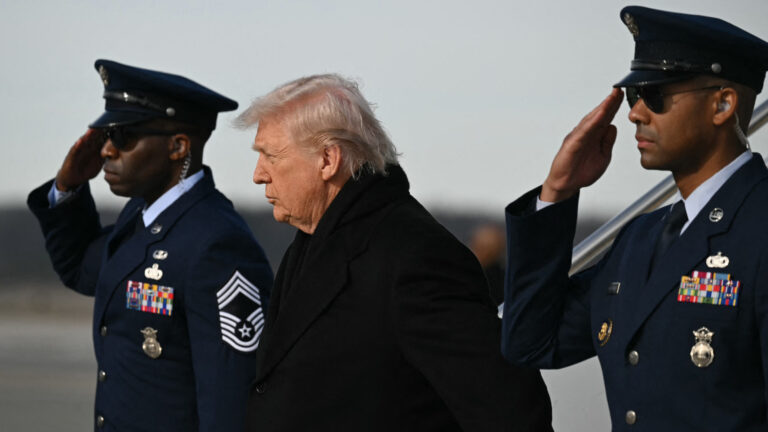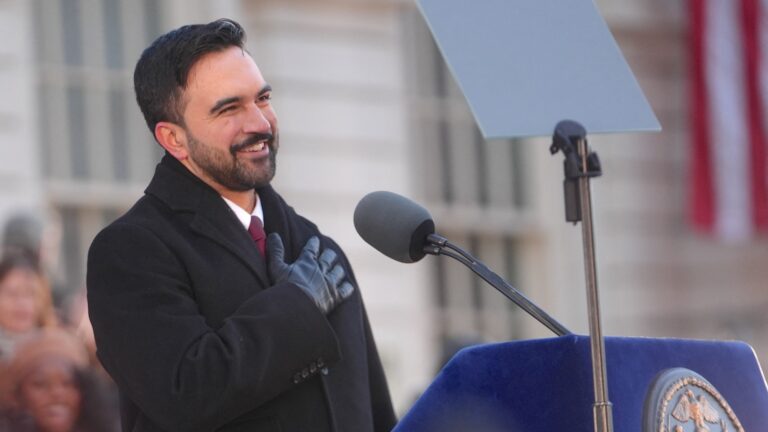In 1991 President George H. W. Bush, together with other countries, sent military forces into Kuwait to liberate it from Iraqi. It was a huge military success as the war was over in one hundred hours! The year after, during the presidential campaign, then Democratic candidate Bill Clinton believed he had to present a strong foreign policy in order to unseat the Republican incumbent from the White House. To this, his campaign strategist James Carville responded: ‘It’s the economy, stupid.’
The U.S. experienced an economic recession after the war. It became clear, especially after Bush’s infamous and retracted ‘Read my lips, no new taxes’ promise, that Americans’ number one priority was domestic: the economy—Clinton went on to win the presidential election.
Still, Not Just the Economy
The average U.S. voter is naturally going to be more preoccupied with what happens at home as opposed to what occurs thousands of miles away in a distant land. This was reflected in a recent poll by the Chicago Council on Global Affairs, which showed immigration at 73 per cent on the list of Americans’ concerns, while crime was at 70 per cent; the wars between Russia and Ukraine and Israel and Gaza playing a lesser role—the former at 47 per cent, while the latter at about 50 per cent. Yet as both Presidents Lyndon B. Johnson and Jimmy Carter learnt the hard way, the mishandling of foreign policy can be detrimental.
Johnson, with the military escalation in Vietnam and the high number of U.S. casualties, chose not to seek another term in office in 1968. As for Carter, the Iranian Hostage Crisis of 1979—U.S. hostages were seized at the American embassy in Tehran by Iranian students—and the disastrously failed rescue attempt portrayed him as a weakling as poopsed to a vibrant Ronald Reagan, who eventually defeated the unpopular Democratic incumbent in 1980. Both former President Donald Trump and Vice President Kamala Harris comprehend how vital foreign policy, vis-à-vis the wars in the Middle East and in Ukraine can be to winning this November. And, at present, Trump is at an advantage because of the Biden–Harris administration entangling the U.S. in both wars, in particular in Israel.
The Political Risk of Supporting Israel
Former U.S. Secretary of Defense James Mattis, just after he retired as the Commander of U.S. Centcom, in his characteristic candor, stated:
‘I paid a military security price every day as the commander of CentCom because the Americans were seen as biased in support of Israel, and that moderates all the moderate Arabs who want to be with us, because they can’t come out publicly in support of people who don’t show respect for the Arab Palestinians.’
It is not so much that Israel, in the words of Israeli Director General of the Ministry of Strategic Affairs Sima Vaknin-Gil, is seen as an apartheid ‘pariah state’ abroad. Rather, it is the unconditional U.S. support for the Jewish state that many Americans feel has gone beyond limits under the Biden–Harris administration, as Israel continues to defy Washington’s calls for a ceasefire, especially since the casualties in Gaza have reached the level of a genocide. Standing by Israel has also been criticized given the reluctance to hold the Israel Defense Forces (IDF) accountable for this and other human rights violations.
This past May, for example, a self-proclaimed soldier from Israel’s notorious Netzah Yehuda battalion bragged of his unit’s killing of a 78-year-old Palestinian American; he also flaunted his genocidal views. After announcing plans to sanction the squadron, the Biden–Harris administration inexplicably pulled back. In another situation last month multiple videos surfaced showing IDF personnel kicking and pushing Palestinian bodies off a roof of a building during a military raid in the occupied West Bank town of Qabatiya. Given the apocalyptic images presented on TV or online from Gaza, and now from Lebanon, standing by the Israelis has become more than a political risk.
Trump argues that the wars in the Middle East and in Ukraine would never have happened had he been in office. In truth, the 7 October attack by Hamas was one that could have and should have been prevented by Prime Minister Benjamin Netanyahu’s government. Aside that Israel had been warned by Egyptian intelligence of potential violence three days before Hamas’ deadly cross-border raid, young Israeli female soldiers monitoring a stretch of the Gaza frontier had repeatedly warned their superiors that Hamas militants seemed to be preparing a major attack—their concerns were dismissed.
The Political Consequences of Supporting Ukraine
The war in Ukraine threatens Harris’ presidential aspirations in part because Americans are divided over Washington’s support for the Ukrainians, more so as it is being understood that the Biden–Harris administration could have prevented the Russian invasion in February 2022.
As top international relations expert Professor John Mearsheimer explained, the U.S.–NATO expansion is what had provoked Russian President Vladimir Putin to invade Ukraine in the first place—and it was preventable. In late December 2021, months before Russian troops entered Ukraine, Moscow had sought a diplomatic resolution asking NATO to offer written guarantees that it would not expand farther east toward Russia and halt all military activities in the former Soviet republics. At the behest of Washington, this was immediately dismissed by NATO officials.
Most backers of Ukraine argue that as an independent and sovereign nation it has a right to determine its own future, and if that includes becoming a member of NATO, it should be allowed to do so. The problem is that the Russians want this happening no more than the U.S. wants China or Russia in its backyard. Could you imagine, as Mearsheimer said, the Chinese or the Russians installing military bases in Canada and/or Mexico? What would the reaction of Washington be? All one has to do is look at how the U.S. reacted when the Soviet Union clandestinely placed nuclear missiles in Cuba in the 1960s, which triggered the Cuban Missile Crisis in 1962, in which President John F. Kennedy was coerced to pull aging missiles out of Turkey that were aimed at communist Russia in exchange for the Soviets withdrawing their own from Cuba.
There is something that is called the Monroe Doctrine, a U.S. foreign policy position that opposes any type of colonialism in the Western Hemisphere. It holds that any intervention in the political affairs of the Americas by foreign powers would be deemed as a hostile act against the U.S. frontier. Well, the Russians also have a like-minded, albeit unwritten, policy.
The Trump and Harris Strategies
Donald Trump’s ‘peace through strength’ strategy had given the impression that he was stronger than his opponent in foreign policy, especially since no new wars were initiated under his presidential term. Harris, on the other hand, has been desperately attempting to prove that she can offer the kind of muscular leadership expected by Americans from their commander in chief, especially after the embarrassing and cataclysmic retreat from Afghanistan in 2021. Pollsters and political commentators have downplayed the dynamics of both wars, but the candidates grasp how central they are to their campaigns, especially since Americans are tired of being involved in someone else’s war.
The views expressed by our guest authors are theirs and do not necessarily represent the views of Hungarian Conservative.
Read more from the same author:







